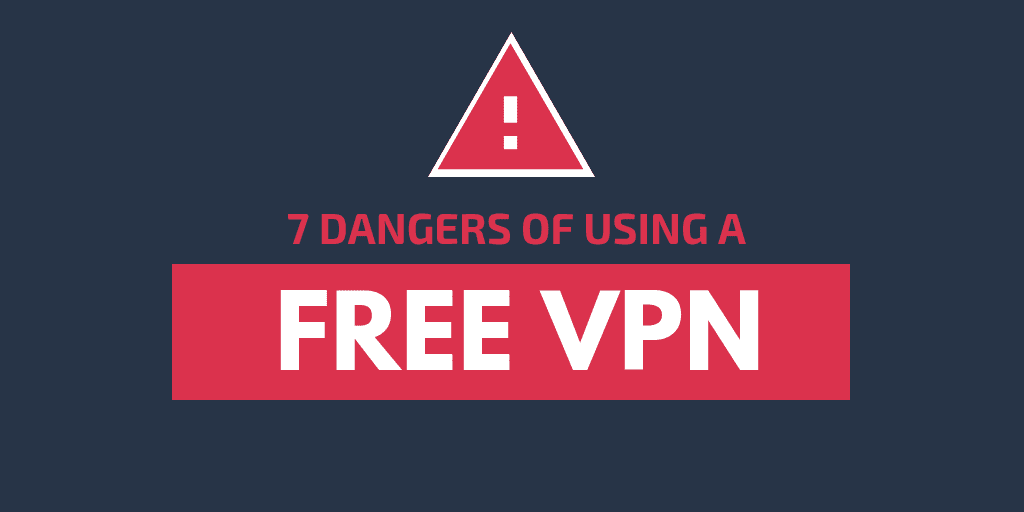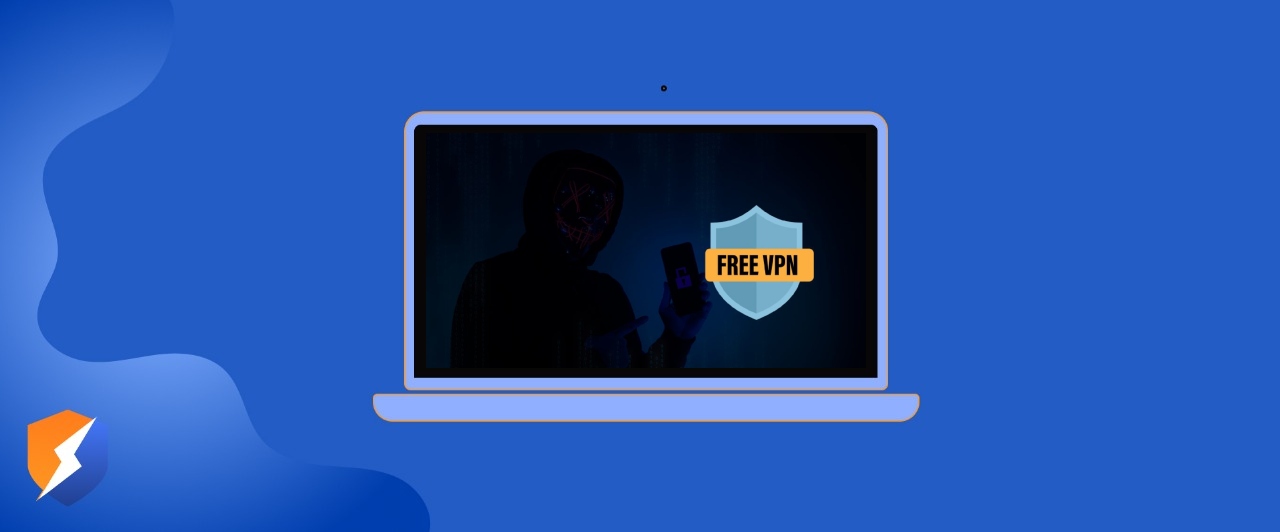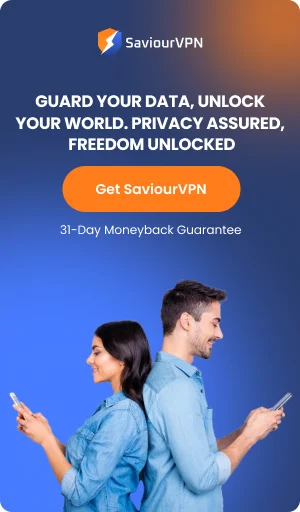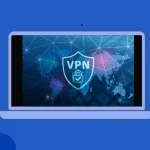- By Hammad Memon
- June 7, 2025
Table of Contents
Using a VPN is more of a necessity these days for online privacy and security. In today’s world, with numerous free VPNs available, the first thing most users do is install a free VPN and start browsing anonymously without incurring any costs.
However, are free VPNs safe? They may seem a convenient option, but free VPN providers can be very risky on the whole and even dangerous in some cases, putting your data and possibly your device in jeopardy. In the following, we outline seven key dangers to consider before trusting a free VPN service.
Are FREE VPNs Safe To Use?
No, free VPNs often aren’t safe. They typically have poor security, which makes them easier to hack. Many do not offer good encryption and thus can have your data intercepted. Some even sell your data via logging, which defeats the very purpose of a free VPN.
Why Should You Avoid Free VPNs?
You shouldn’t use free VPNs because, in many cases, the privacy and security they offer is worse than the paid options. Since some free VPN providers sell your data, and all free VPNs shove ads into their apps, you are the product. They also likely don’t have the funding to maintain their networks of servers, meaning free VPNs are easier to hack.
We all know the common wisdom about free services being a risk. A 2024 study discovered that 88% of free Android VPNs leak user data, which also showcases that free VPNs are not capable of protecting your internet traffic.
Using a free VPN to protect your online privacy is equivalent to using a grocery store plastic bag as a parachute. Just like the plastic bag would fail to keep you safe in free fall, even the best free VPNs won’t keep you safe on the web.
7 Hidden Risks Behind Free VPN Services

- Malware Infection
Numerous free VPNs incorporate malware, viruses, or untrustworthy components. In 2024, 20% of free VPNs surveyed were identified to possess malware putting users at risk for malicious theft of personal data, spying, or accessing a device remotely by a hacker.
- Data Harvesting
Almost every free VPN tracks its users by logging and selling your web activity, IP address, and location without ever clearly obtaining your consent from you and/or not having a properly outlined privacy policy that does not violate your privacy.
- Ads Overload
Generating profit is why free VPNs bombard users with advertisements, and track their online rights, so they can monetize you by serving you as many targeted ads as possible by breaching your IP address and browsing activity.
- Browser Hijacking
Free VPN browser extensions are notorious for injecting malicious code that hijacks your browser; changes and modifies search results and your home pages; thus exposing you to malware or spam, impacts your security.
- Slow Internet Speed
Free VPNs can slow your speeds due to running ads, data collection, and background processes, using up the VPN’s resources. Many free VPNs have limited servers, and they are often overcrowded, resulting in limited connections and lower speeds. Some free VPNs with trials intentionally limit speeds because they want you to upgrade to a paid plan.
- Limited Access
Free VPNs rely on a very small number of shared IP addresses, which websites (especially streaming services) will flag and block, resulting in lots of error messages, CAPTCHAs, and dropped connections. Free VPNs with limited server networks often provide unstable access to limited websites with poor or no alternative options.
- Government Surveillance
To make matters worse, many free VPNs have ownership in countries where government surveillance is common (e.g., China and Russia), which means your data could be exposed by a free VPN. They may also be ordered by law enforcement officials in the country where the VPN is located to log or monitor user activities, ultimately reducing your privacy and security. Always check ownership and jurisdiction before using a VPN.
How To Choose A Reliable VPN?
To locate a trustworthy VPN, first look at whether it is a free tool or a paid option. A paid option will generally mean you are likely to have a safer VPN connection. Then, investigate the provider’s:
Privacy policy: Does the VPN service log any data, and what does it do with that data? For maximum privacy, you’ll want to find a VPN with a no-logs policy so your online activity is never known.
Encryption: A reputable VPN service will use strong encryption (like AES-256) and support secure protocols (like WireGuard, OpenVPN, and IKEv2).
User reviews: Check what VPN users and experts say. See if online reviews can affirm the reliability, speed, and customer service quality of the VPN provider.
Is SaviourVPN Safe?
SaviourVPN’s first priority is your privacy and security. Unlike free VPN providers, SaviourVPN uses strong encryption protocols to protect you from hackers and trackers while on the Internet.
SaviourVPN does not record or store any data of its users and guarantees to bypass any and all geographical barriers that exist on the Internet.
A few of the benefits of SaviourVPN include:
- Access to all blocked websites
- Robust encryption systems
- 100% security and privacy
- Blazing-fast speed
- A wide global network of servers
- 100+ locations to choose from
SaviourVPN is one of the best, safest, and most affordable options for a reliable VPN service.
Free VS Paid VPN
| Feature | Free VPN | Paid VPN |
| Speed | Often slow due to limited resources and throttling | Generally fast with unlimited bandwidth |
| Server Availability | Limited servers and locations | Large network with many locations |
| Data Limits | Usually capped or restricted | Typically unlimited data |
| Privacy & Security | Often weaker encryption, may log or sell data | Strong encryption, strict no-logs policy |
| Ads & Tracking | Common, with ads and data collection | Ad-free experience |
| Access to Content | Frequently blocked by streaming sites | Reliable access to geo-restricted content |
| Customer Support | Minimal or no support | 24/7 dedicated support |
| Connection Stability | Unstable, congested servers | Stable, consistent connections |
| Transparency & Ownership | Sometimes unclear or shady ownership | Transparent companies with clear policies |
FAQs
Yes, free VPNs are generally less secure than paid options. Most free services do not have the resources to invest in a full infrastructure, nor will they offer enough security features, and in fact, many free VPNs may compromise your online security by taking data they collect and selling it, or by simply flooding you with ads.
No, not all free VPNs are going to sell your data. However, free VPNs are often monetizing your usage with other methods, such as ad revenue and other sources, since you don’t pay for a subscription. Every VPN is a service that costs money to run, and so the providers generally need to find a way to monetize it in some form.
With many free VPNs available, you won’t know how safe your information is when using them, so it is better to stick to a paid VPN that has a known privacy policy.
Not generally. It is challenging to find a free VPN that is safe for use on an iPhone. In the first place, iPhones are generally safer than Android devices from malware, but a VPN that compromises your data is dangerous on any device. There are some truly free VPNs — but they are limited in terms of features and performance.
No, free VPNs are not necessarily safe for Android. There is a high likelihood of data logging, limited encryption, and the potential of being pumped with malware as well. Many free VPNs practice dishonest security measures, and some may even sell your data to third parties.
If you want to have trustworthy security on Android, a good option is to use pay-for VPN services where you can expect strong encryption, a no-logs policy, and a security audit every once in a while.
There aren’t many good free VPN services available. Good free VPNs exist, but usually, you will find speed restrictions and limited data. Although they are safe to use, they just don’t get the quality of service that you can expect from paid VPNs.
Hammad Memon
Hammad is a passionate cybersecurity enthusiast and tech writer dedicated to making online privacy accessible to everyone. With a background in coding and digital security, he breaks down complex VPN and cybersecurity topics into easy-to-understand guides for Saviour VPN’s audience.












